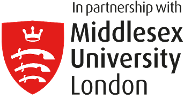Overview
 As nurses, midwives and allied health practitioners taken on more advanced and autonomous roles, they are required to develop more extensive in-depth knowledge and clinical expertise to make professional and clinical judgements. This module will provide practitioners with the opportunity to develop their knowledge of critical reasoning and holistic patient management skills within their area of practice. These skills are fundamental within the Advanced Practice frameworks (NHS 2017, National Leadership and Innovation Agency for Healthcare 2010) and for those undertaking Non-Medical Prescribing.
As nurses, midwives and allied health practitioners taken on more advanced and autonomous roles, they are required to develop more extensive in-depth knowledge and clinical expertise to make professional and clinical judgements. This module will provide practitioners with the opportunity to develop their knowledge of critical reasoning and holistic patient management skills within their area of practice. These skills are fundamental within the Advanced Practice frameworks (NHS 2017, National Leadership and Innovation Agency for Healthcare 2010) and for those undertaking Non-Medical Prescribing.
This module is quality assured by Middlesex University and the student will receive a Middlesex University award on successful completion.
- This module is a prerequisite for the Middlesex University Non-Medical Prescribing module that leads to NMC Registration
- You will also be required to attend and complete all of the PDUK 5-day Patient Assessment Skills Workshop prior to starting this module
Course content
Module aims:
This module is designed to enable experienced nurses, midwives and allied health practitioners to develop their skills of clinical decision making to plan appropriate care or onward referral.
Knowledge (understanding):
- Synthesise assessment findings to reach conclusions which are based on evidence, clinical judgement and risk assessment
- Critically evaluate their practice using contemporaneous research
Skills (competencies):
Develop, implement and critically appraise a therapeutic plan of care in collaboration with other health and social care practitioners
Syllabus:
- Advanced decision making skills
- Role of the multidisciplinary team and interprofessional working
- Clinical decision making for differential diagnosis
- Rationale for diagnostic investigations
- Legal and ethical issues including accountability
- Use of Evidence-Based Practice to underpin clinical decision making
- Risk assessment and management
- Humanistic and collaborative approaches to patient care
Teaching
The students will undertake 150 hours of independent and facilitated learning over one semester of 15 weeks.
Our pedagogical approach, aligned to Universal Design for Learning (CAST 2018), is to offer a range of teaching and learning experience to enable deep learning and mastery of the subject. Using a blended learning multimedia approach, teaching content will be available using technology such as videos, narrated PowerPoints and podcasts through the Institute’s Learning Pod. Knowledge and understanding, as well as application to the student’s area of practice, will be developed through a range of teaching methods suited to the module content. Formative assessment using methods such as peer review and engagement in online discussion forums and seminars will consolidate learning and prepare students for their summative assessment.
There will be embedded sessions to address the expectations of studying at Masters level for all students who are new to this level of study, which will also be available to continuing students, as well as access to additional optional study skills sessions, both online and workshop based.
Students will either undertake this module alongside the History Taking and Physical Assessment Module or already have an equivalent qualification. Consideration will be given to experienced practitioners who do not have a formal physical assessment module, especially those who are currently undertaking advanced roles or who are non-medical prescribers and who what to further develop their skills and knowledge of clinical decision making. Students will also be required to identify a suitably qualified practice assessor when applying for this module who will sign off the case study to ensure that the clinical decision making is sound.
Assessment methods:
Summative:
Task 1: Case study demonstrating critical appraisal of the assessment and plan of care for a service user (either 3000 words or digital presentation of 20 minutes). The clinical competence of the case study must be signed off by a suitably qualified practice assessor.
100 % of total module mark (Outcomes K1, K2, S1)
Entry requirements
Students accessing this programme will normally hold a relevant first degree (2:2 or above). Consideration will be given to applicants who have extensive experience and can demonstrate that they have the equivalent 'graduate level' skills by virtue of this experience. These individuals will be able to seek alternative entry through the accreditation of prior learning process. International students must demonstrate competence in English language through IELTS 6.5 (with minimum 6.0 in all components) or equivalent.
Fees and funding
Funding may be available for States of Guernsey employees. Please discuss with your manager.
Careers
This module forms part of the advanced practice pathway of the Masters in Professional Practice and will develop skills and knowledge to apply for advanced practice roles
Book now
Email: theinstitute@gov.gg

